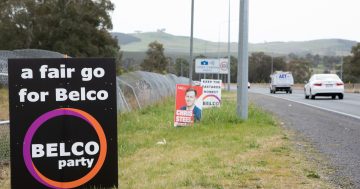
Should media outlets support one contender over another in an election campaign? The Canberra Times has today backed the Canberra Liberals over Labor in its editorial. Many would argue its position on the matter has been clear through its coverage for months.
There’s no doubt that taking a stance against the status quo is more contentious and therefore likely to bring more eyeballs, but I do not believe that is the reason the newspaper has made a case for the Liberals. Having spoken to senior staff there about the issues, it’s my assessment that they genuinely hold the views they are espousing. One could argue also that there is a fine tradition in newspapers of making a call in the editorial just before election day, and not to do so would have disappointed readers.
Here at the RiotACT we have tried to remain impartial. Canberrans are the most highly educated voters in the country. You don’t need us to tell you how to vote. We’re here to foster discussion and debate about the people and policies of all parties (including the many independent candidates) so that you can make your own decision.
We do have one overwhelmingly strong view about this election that we are happy to share with you, though.
It is that we wish that the decision on light rail was one that the city could have made separately to that of who should govern, via a separate section on the ballot paper, independently of candidate selection.
It has been very clear all year that there are many Canberrans who are torn, because they would like to see light rail in our city but would usually vote Liberal, and plenty who are opposed but would typically vote Labor.
There are others who usually vote Labor or Greens but would like to see a change of government this time after 15 years … but not if it means tearing up the light rail contracts.
A huge proportion of Canberrans who feel strongly about the light rail issue must vote against the party of their choice to ensure the light rail result they want.
We ran a poll on this issue earlier in the campaign, and the results reflect all of this. (See One fifth of voters conflicted over light rail.)
It’s a conundrum that means candidates voters didn’t particularly want to support will be elected based on their light rail stance.
Others will miss out despite being favoured to govern because of their position on light rail.
And many will vote against their true feelings on the transport issue because their view on who should govern matters more to them at this time.
Chief Minister Andrew Barr says light rail will be dead to the city by Sunday if he loses government. Opposition Leader Jeremy Hanson agrees.
But when there are so many other factors in play, how can the result possibly be seen as a true reflection of Canberrans’ feelings on this issue?
What do you think? Are you feeling torn?





















